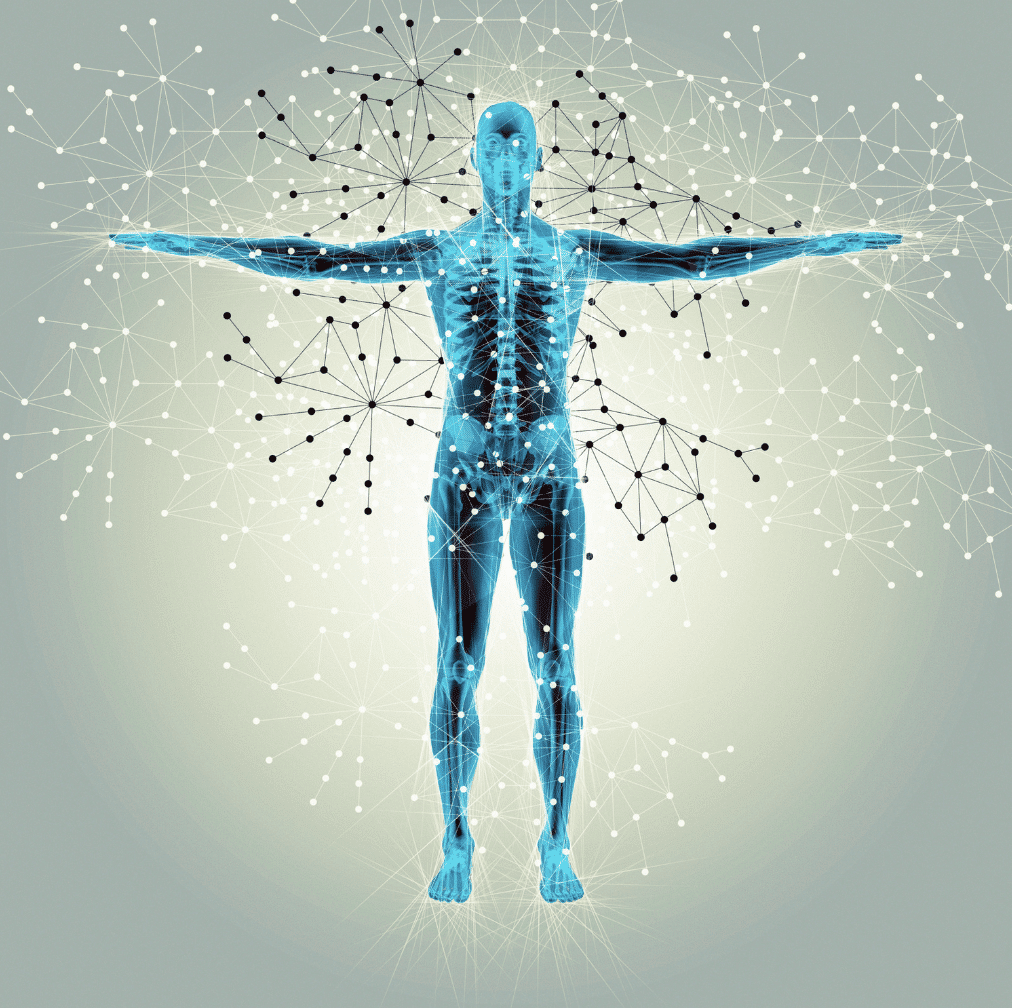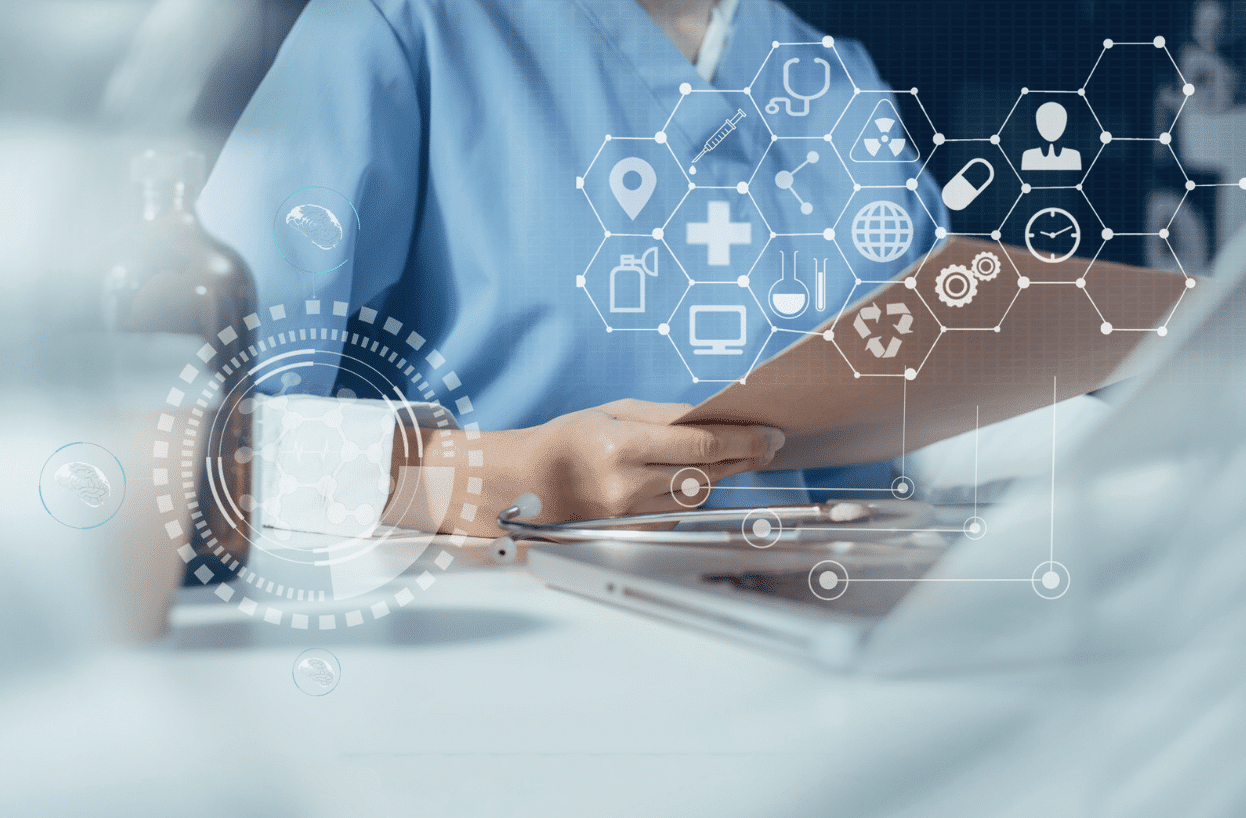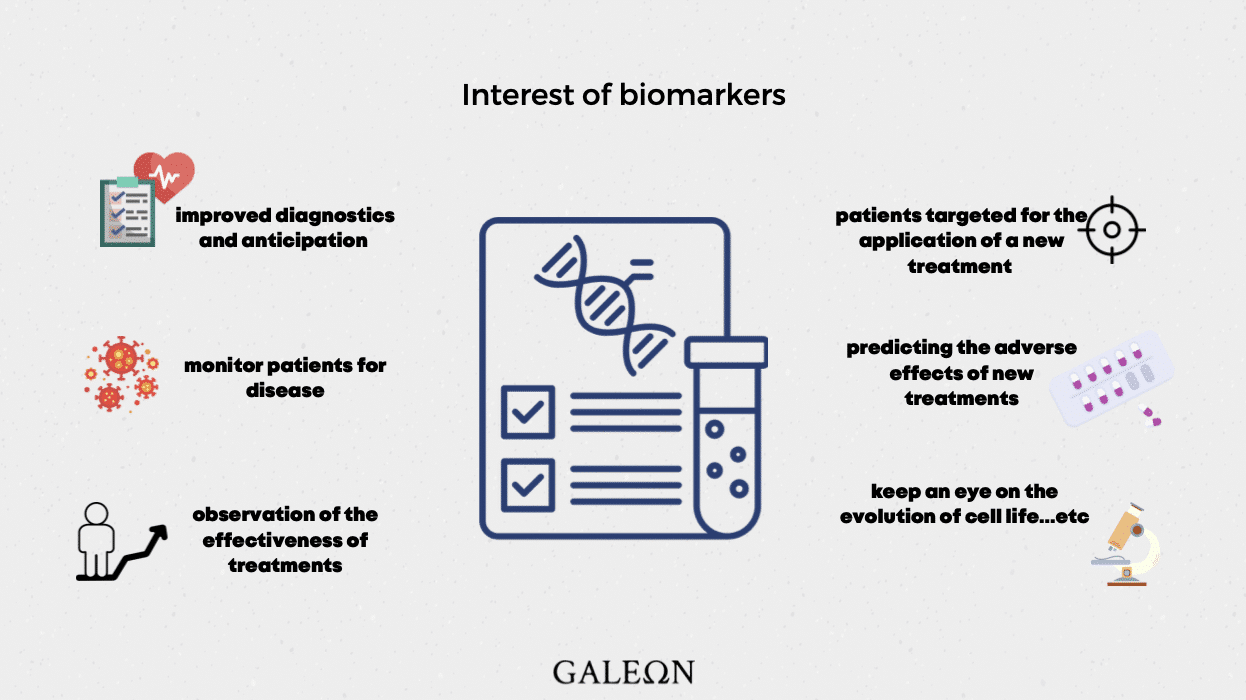Voice biomarkers or how our voice can improve health
Recently, researchers at Kyushu University in Japan have made a splash by developing a phone unlocking system that uses our breath.
Yes our breath ...
Surprising isn't it? However, the results show an accuracy rate of 97.8%. Thus, our breath as well as our fingerprints or saliva, can be used as a means of biometric authentication.

New Artificial Intelligence (AI) and machine learning are developing and are interested in biomarkers*.
*Biomarkers are biological indicators that we all have, as human being.
In this case, we will talk about voice biomarkers.
The principle is as follows: you exchange a few words with an AI, you answer questions, and in return, the latter will identify certain pathologies, diseases or other (e.g.: the covid).
And this, with the intonation of our voice, the rhythm and the flow used.
As you can see, the stakes in the field of health are diverse:
- Faster and more accurate diagnoses;
- The possibility to do test at home;
- Improved decision making and patient management;
- Optimization of clinical trials, for example.
This is the subject of this new article on health and AI: voice biomarkers or how our voice could help improve medicine.

Part 1 - The origins of voice biomarkers
Before talking about specific part of voice biomarkers, it is important to recall the general context.
1/ Did you say: biomarkers?
Biomarkers or biological markers, whatever you call them, are in fact all measurable biological characteristics.
In other words, all the elements of our body which, once analysed, indicate certain data.
For example, they can be cellular or molecular markers: DNA, RNA, proteins, metabolites.
These can be measured with a tissue or liquid biopsy (saliva, urine, blood).
They can also be physiological or morphological markers, etc.
In this case, medical or clinical imaging will be used.
It does not matter which category, simply, remember that depending on the case, these markers can be used to detect if everything is fine or if, on the contrary, there are pathogenic elements.
In another case, they allow us to observe the reaction to an exposure or an intervention (ex: chemotherapy).

2/ Use cases of these biological markers
Biomarkers have various interests for medicine and research.
Of course, the first thing that comes to our mind are all the diagnoses and the possibility of predicting certain diseases, of detecting them before an advanced stage.
They are also an excellent way to monitor certain patients, to observe the effectiveness of a treatment for example.
The effectiveness, but also beforehand, at the level of the elaboration of these treatments.
How the body reacts after some interventions?
This ties in with our last point, that of the possibility of carrying out clinical trials of better quality and which are better supervised.
Medical research has recently focused on a new type of biomarker, which is the voice.
How can the voice be used to detect a disease in a particular patient?
Buy your first crypto easily in with Galeon
Part 2 - Voice biomarkers, new ways to identify our general health
1/ The voice, a powerful and complex mechanism
The functioning of the voice, or at least its mechanism, is very interesting to observe, especially with singers.
When they want to produce a sound, they have to think about some technical elements.
Why? Because our body is structured in such a way that it must establish a coordination between several elements like the diaphragm, the lungs, the thorax, the trachea, or the shoulders to be able to emit a sound.
The intonation and the vibration are diversified thanks to the glottis and the larynx, and the resonance works with the oral cavity and the nasal cavity. A real instrument!
Therefore, if all the mechanics do not work properly, the voice is supposed to emit a different intonation than the one we normally have.
This is what scientists are trying to demonstrate.
According to recent studies, when we experience a trauma, whether physical or mental, the intonation and rhythm of our voice change.

2/ Machine learning and AI to evaluate voice biomarkers
Based on this observation, new machine learning and AI are being developed to detect and analyze the origin of these disturbances.
Again, whether they are mental or physical.
With hundreds of thousands of patient data collected, the machines are able to associate the origin of a voice disorder with a particular disease in a patient.
Example of an alteration linked to a physical failure: Parkinson's disease
One of the main symptoms of this disease is tremors linked to the degeneration of the muscles and the nervous system.
Inevitably, the voice is affected.
Moreover, patients suffering from this disease generally show difficulties to mark punctuation and intonations.
Therefore, a machine learning could be able to apprehend, in advance, the signs of the disease from the voice of a patient.
Example of alteration linked to mental failure: depression, burn-out, bipolarity or even Alzheimer's disease
Similarly, when a person's mental health is impacted, the tone of voice may become more monotonous, less rhythmic, shaky...etc.
All these assumptions, which were once made under the guidance of a health professional, could now be clarified thanks to machine learning and voice biomarkers.
Part 3 - The challenge of patient data from voice biomarkers
Of course, the more data we collect from voice biomarkers, the more these machine learning tools will be able to establish diagnoses quickly and efficiently.
Clinical trials can then be carried out on a more specific panel of people.
Treatments in the test phase can be better understood.
With the precision that these biomarkers will have to be collected on patients who have defects, as well as on patients who do not have defects.
On the other hand, one could ask how the collection of these data will be carried out and especially, how will it be organized afterwards?
By agreeing to carry out a medical test at home, for example, by means of an application, we also agree to the use of our data by other people, companies, etc.
If it's only about voice, it's not so worrying.
However, let's imagine that all this information is sold to an insurance company
As always, it will be a matter of setting rules and limits.

Conclusion
Once again, technology in the service of medical research tends to change the future of medicine.
By developing learning machines or applications placed at the disposal of people, diagnoses can be made quite quickly, without having to wait for a physical medical appointment.
In fact, this would allow, for example, to empty waiting rooms and to lighten the workload of health professionals.
A diagnosis made beforehand would allow the patient to be directed to a particular professional.
What is certain is that voice and other biomarkers are definitely useful tools for progress of the medicine.
Nevertheless, the use of our biological markers will require some regulation.
Would you like to be informed of Galeon's progress in advance?
Subscribe to our newsletter!
